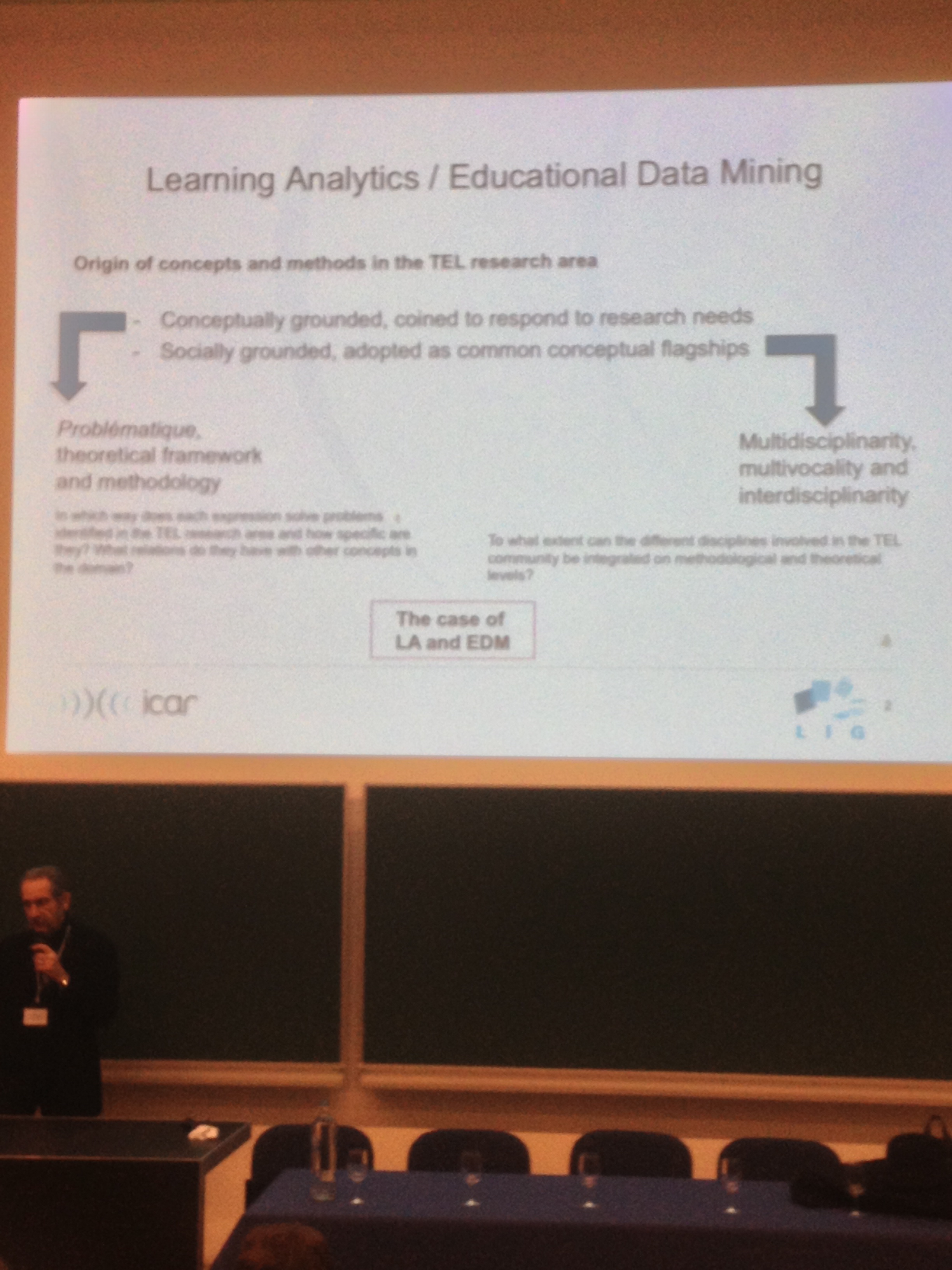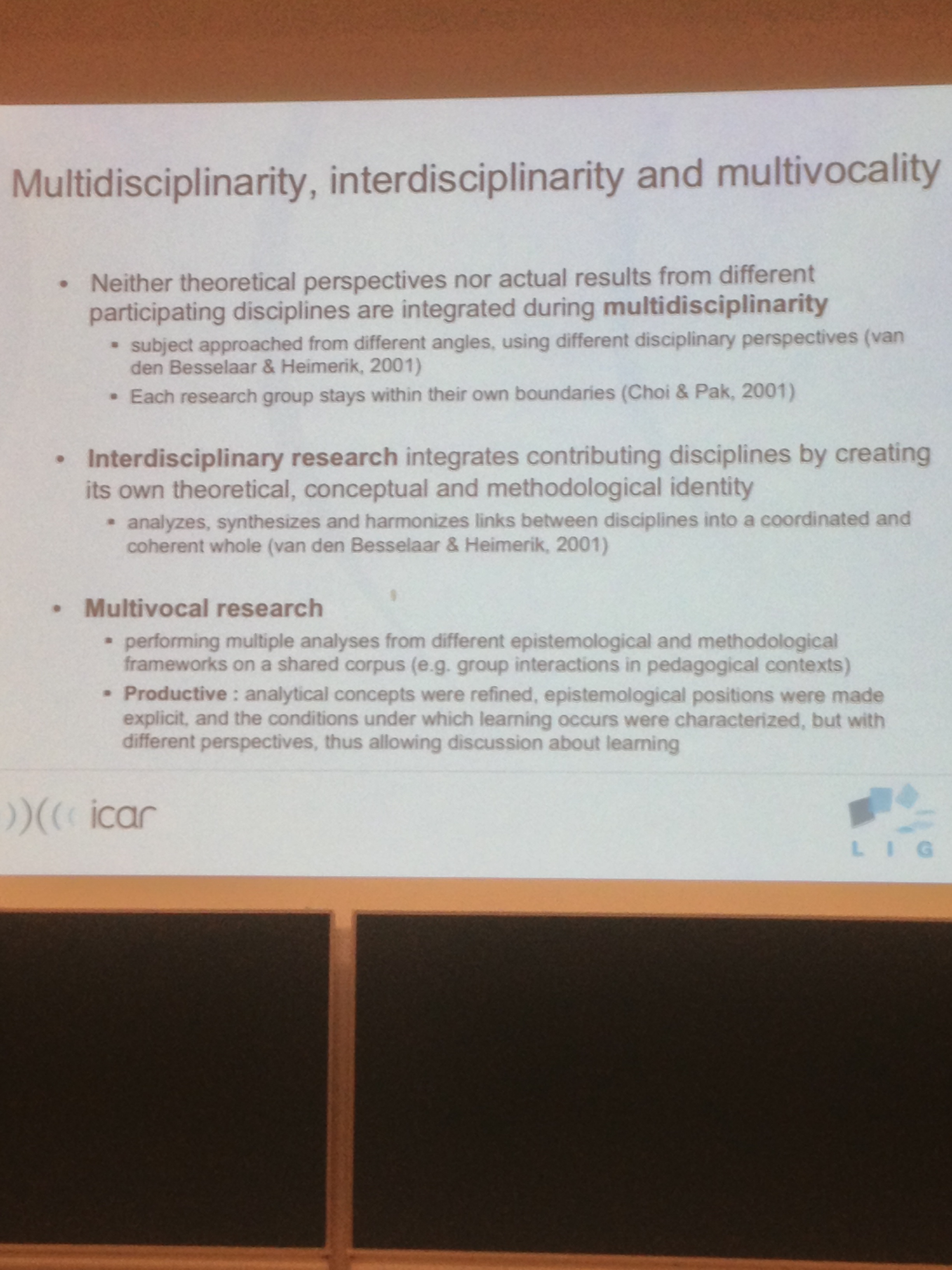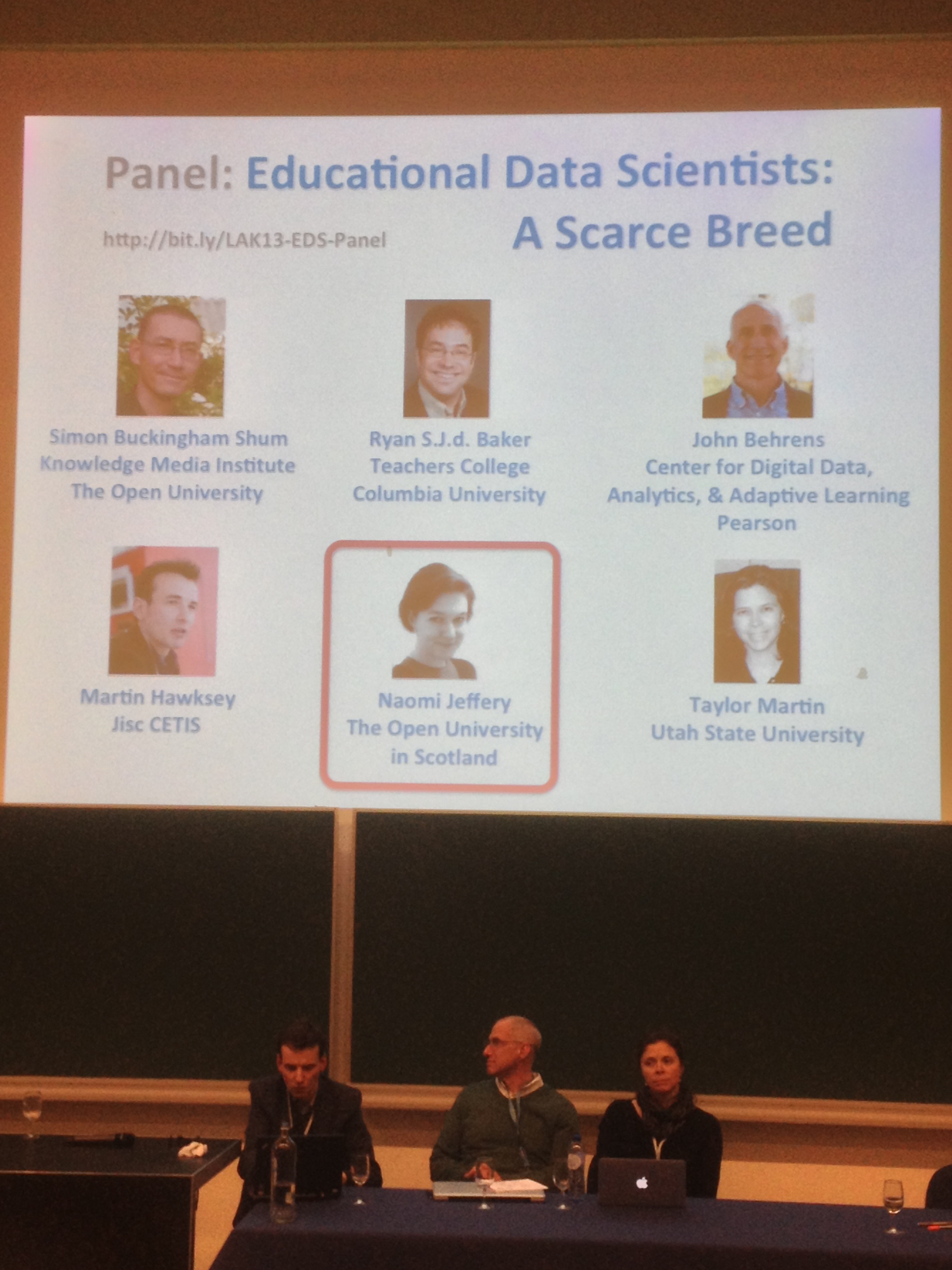Multidisciplinarity vs. Multivocality, the case of “Learning Analytics”. Nicolas Balacheff and Kristine Lund. This one is a best paper nomination so we’ll see how it goes.
This is an academic exploration of the differences and overlaps between Learning Analytics and Educational Data Mining.

Historically
learning analytics (appeared 2009, 1st conference in 2011)
educational data mining (appeared in 2000, 1st conference in 2008)
I won’t repeat the methodology here, suffice to say it seemed a robust academic exercise (studies of published papers, vocabularies, keywords, scope, organisations etc)
Nice opportunity here to slide in an academic term ‘multivocal’, if like me it’s not a word you use regularly it simply means ‘having many meanings’. Multivocal research has many more impenetrable terminologies;

This paper is a clear vehicle to give Learning Analytics a lift by demonstrating in an academically rigorous way that the field is unique. It concluded that way.
Next up a panel session exploring the role of the data scientist (the sexiest job of the 21st century)
Each panel member described their career path culminating in their current role as data scientist.

It’s an interdisciplinary career as evidenced by the variety of backgrounds, variety of current roles and descriptions. Mention here of something I discussed with Simon Buckingham Shum over lunch. Train the trainers. An international summer camp occurring later this year. More on that later. Here are a few of the suggestions;
Should we focus on building teams comprising relevant skills to the various tasks, or do we try to generate a new role of data scientist?
As there’s no clear definition (much like enterprise architect and many other recent roles) caution is wise. Don;t be only ‘this’ and not ‘that’.
Data Scientist isn’t a role, it’s just something you do
Last century vs this century – last century assessment was by multiple choice test, this century we assess simulation, conversation, contribution etc etc. Methodologies must evolve to reflect changes and opportunities. Don’t define a data scientist as it will become out dated.
Look for longevity. Address the issues that we’ll be tackling for a long time to cme
Data Scientists are becoming more involved in a wide variety of tasks. They need a higher profile.
Business schools and elsewhere are offering courses on analytics. The predictive aspects seem to lack socio cultural aspects and policy.